UNDP Yemen: Rainwater tanks bring relief to farmers in Dhamar, Yemen
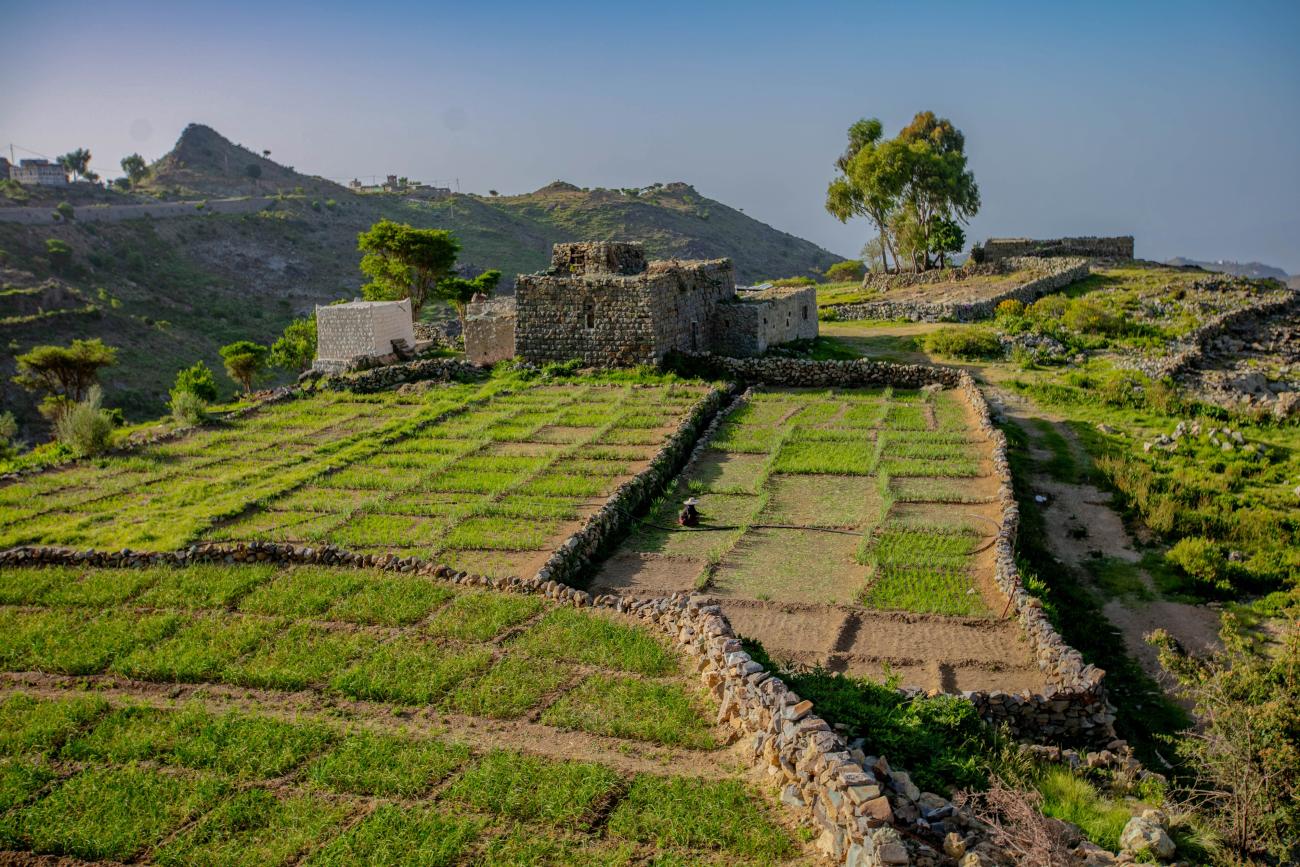
--
Yemen's agriculture sector, a lifeline for millions and a cornerstone of the nation’s economy, has been severely affected by extreme climate change. Continued conflict has further exacerbated the situation, contributing to one of the world's worst humanitarian crises and widespread food insecurity.
To support communities in Yemen, the United Nations Development Programme (UNDP) is collaborating with the Social Fund for Development (SFD) and the Public Works Project (PWP) to implement the Food Security Response and Resilience Project (FSRRP) with funding and support from the World Bank.
In an effort to address water scarcity caused by climate change, two rainwater harvesting tanks were constructed in in Bait Al-Samhi Village, Dhamar Governorate, improving access to water for community members. Each rainwater tank has the capacity to hold 940 cubic metres of water.
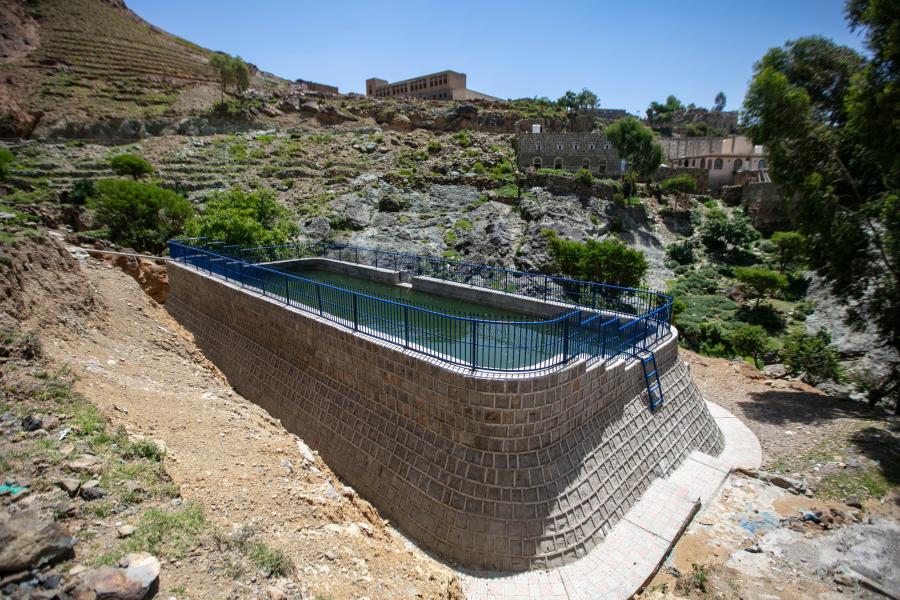
Increased agricultural production
Fouad, a farmer in Bait Al-Samhi Village, is confident that the project will significantly increase production in the coming season. He explains, "We rely on rainfall to irrigate our crops. During the winter, our lands become dry, and agriculture ceases due to the lack of irrigation water. Before the project, the situation was very difficult. We had no source to irrigate our crops after the rains stopped, which led to crop failure and financial losses. Now, after the project, the situation has changed. I can farm even after the rainy season.”
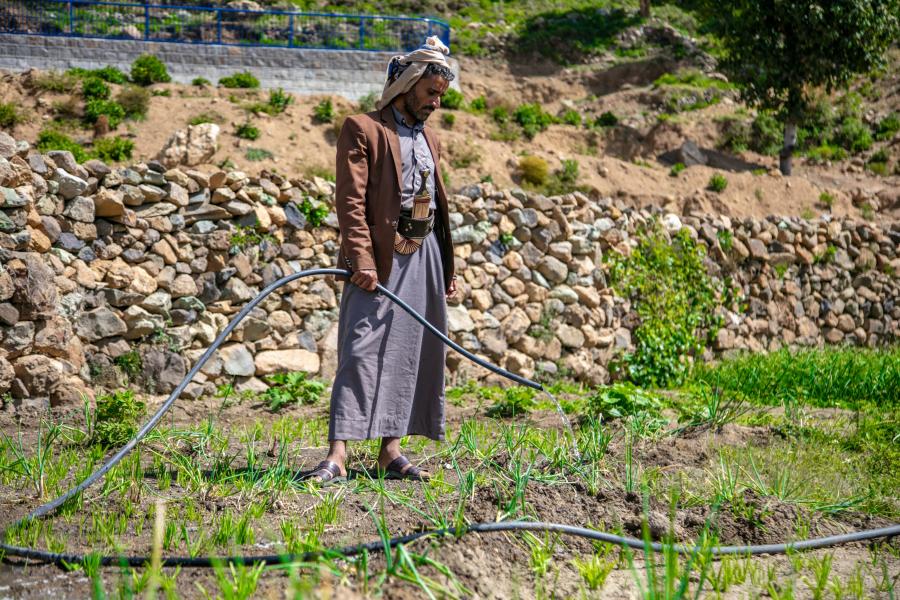
A sustainable water source
Rainwater harvesting tanks enhance food security for families by supporting farmers to reclaim degraded agricultural lands, and improve irrigation systems. Mutee, the coordinator of the local community committee, says, "Climate change has affected agricultural lands in the region. Due to water scarcity, many people have abandoned farming."
Mutee explains that the project was implemented to ensure continued farming activities of the local population, which is their primary source of income.
He adds, "The project has positively impacted community members by expanding their cultivated lands, increasing crop production, and improving their living conditions."
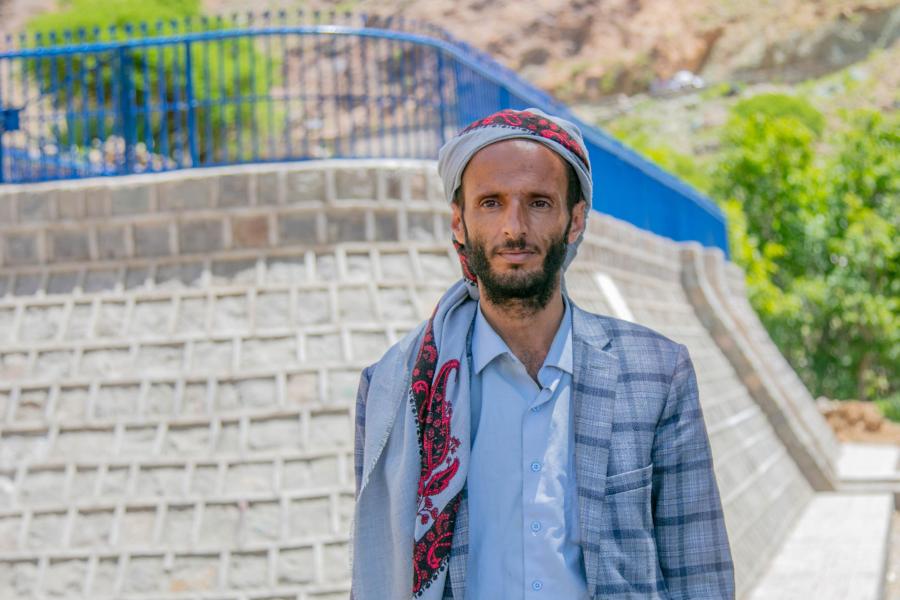
Empowering women farmers
Saeeda, a mother of five, was strongly affected by land degradation due to climate change.
She says, "I grow corn and vegetables during the rainy season, but in winter, farming stops due to water scarcity."
She explains how the rainwater harvesting tanks will enable her to continue farming after the rainy season.
"Now, I have been able to cultivate two plots of land and will increase the cultivated area with the irrigation from the tanks. Things have changed, and I feel happy when I see my farm green and the crops thriving without damage." Saeeda hopes her land will remain green enough to cultivate several times in a single season.
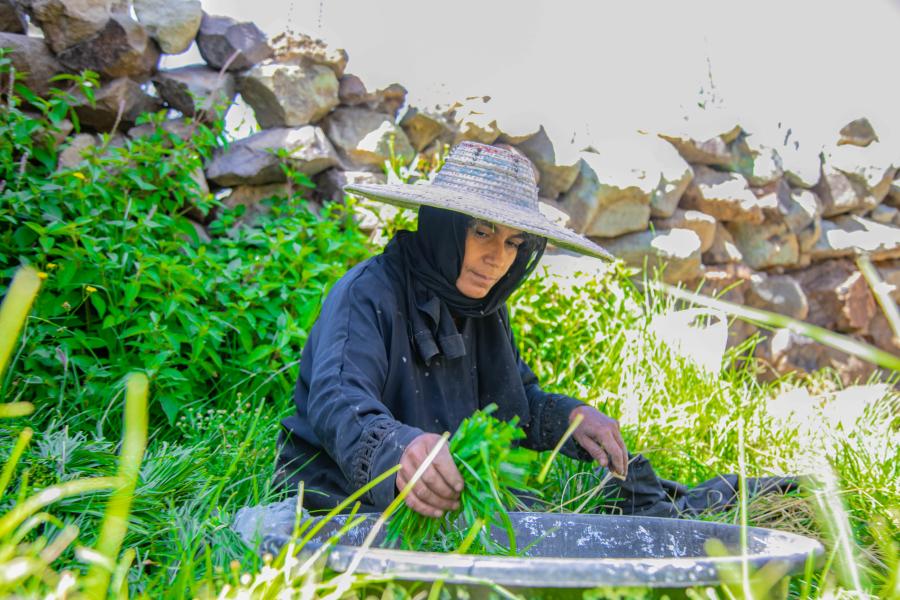
Creating local job opportunities
The project has created job opportunities for local community members in Bait Al-Samhi, providing income and helping them to acquire new skills through a cash-for-work program.
Bader, a father of six and a community member who worked on the rainwater harvesting tanks project, says, “The project provided me with a temporary job for 45 days, which helped me support my family and meet their basic needs while serving the community.”
Enhancing food security
"In addition to improving agricultural production in the long term, the rainwater harvesting tanks have created job opportunities to help people financially," says Abdullah, an engineer and project officer with UNDP’s local partner, SFD.
The project has increased local farming areas and improved food security by providing approximately 124 farmers with access to alternative water sources.
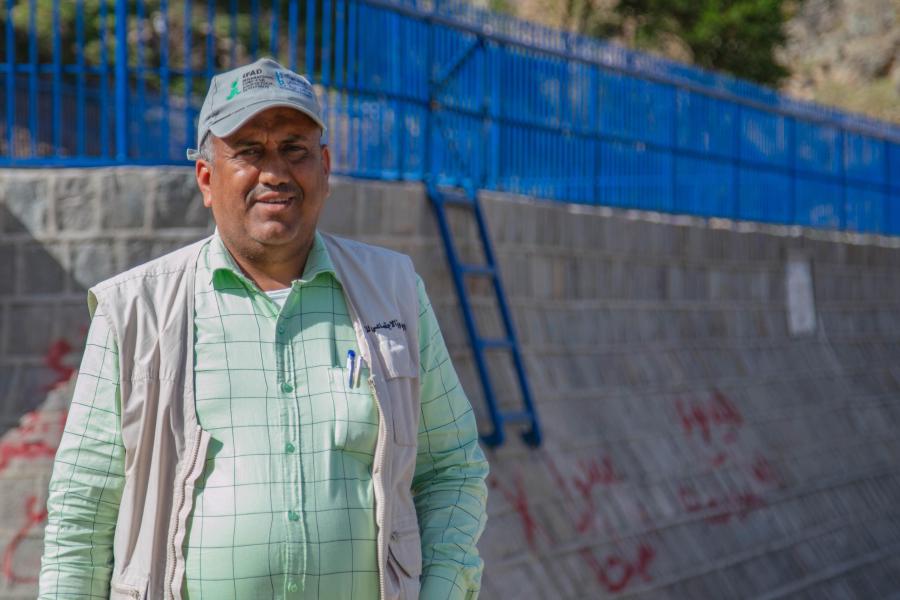
Funded and supported by the World Bank’s International Development Association (IDA), the Yemen Food Security Response and Resilience Project (FSRRP) is implemented by the United Nations Development Programme (UNDP), the Food and Agriculture Organization of the United Nations (FAO), and the World Food Programme (WFP). UNDP’s component of FSRRP improves agricultural production infrastructure and builds climate resilience and is implemented in partnership with the Social Fund for Development (SFD), and the Public Works Project (PWP).



